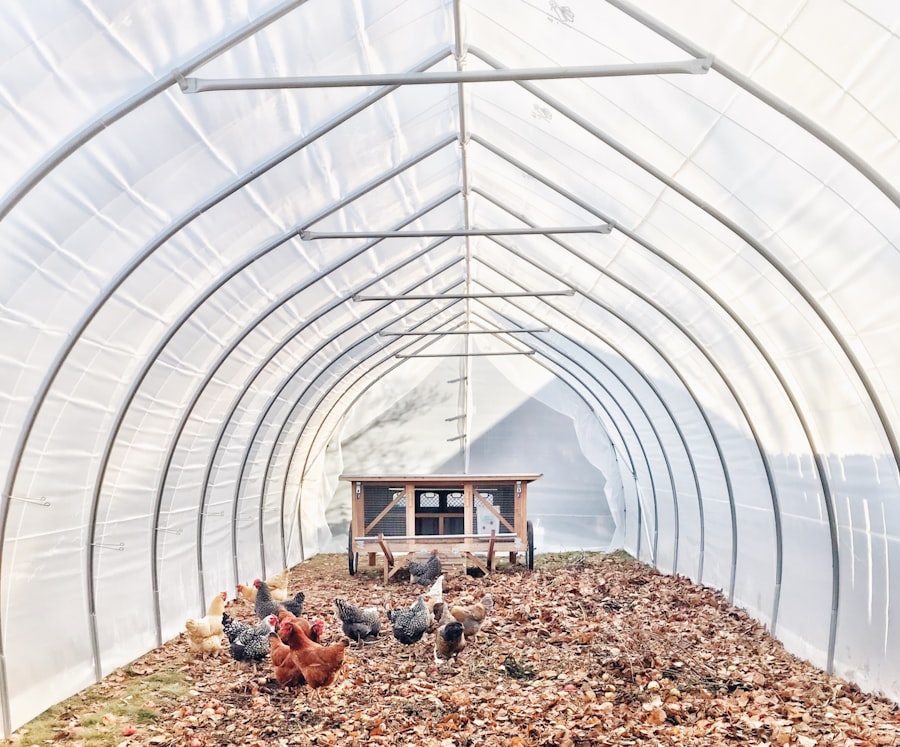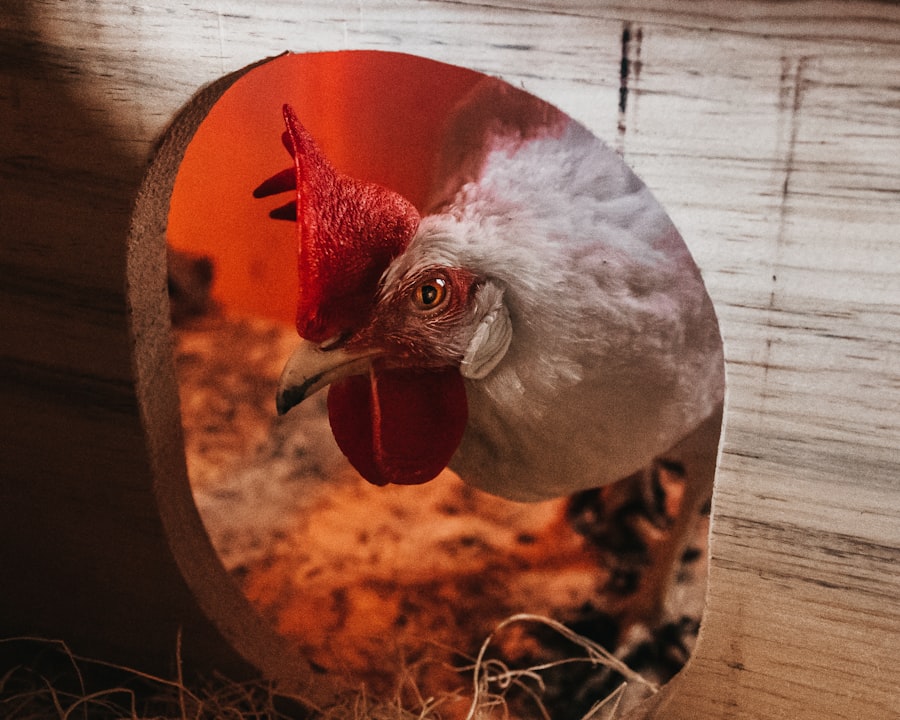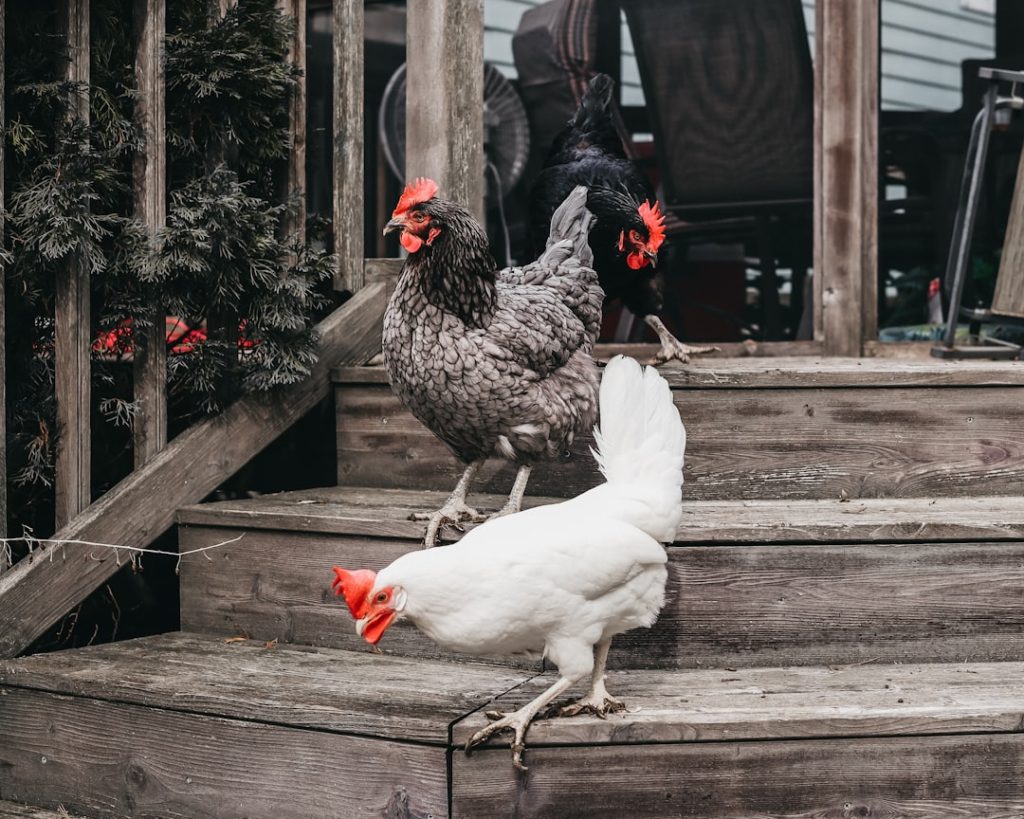Chicken keeping is a popular hobby and agricultural practice that can be undertaken by individuals in various living environments, from rural areas to suburban neighborhoods. The primary benefits of raising chickens include access to fresh eggs, natural pest control, and a closer connection to nature. Chickens are generally considered low-maintenance animals and can be integrated into many households with relative ease.
These birds are known for their sociable nature and can serve as engaging pets for families. There are numerous chicken breeds available, each with distinct characteristics and attributes. Some breeds are specifically bred for egg production, while others are developed for meat yield.
Climate adaptability is another factor that varies among breeds, with certain types better suited for colder regions and others thriving in warmer conditions. Prospective chicken keepers should conduct thorough research on different breeds to select those that align with their specific requirements and living situations. Raising chickens can provide educational opportunities and practical experiences in animal husbandry and sustainable living.
It allows individuals to participate in small-scale food production and gain a deeper understanding of agricultural processes. The practice of keeping chickens can contribute to a more self-sufficient lifestyle and provide a source of fresh, locally-produced eggs.
Table of Contents
Key Takeaways
- Keeping chickens can be a rewarding and enjoyable hobby for those with the space and time to care for them.
- When choosing a breed of chicken, consider factors such as egg production, temperament, and climate adaptability.
- Setting up a coop and run involves providing adequate space, shelter, and protection from predators for your chickens.
- Proper feeding and watering of chickens involves providing a balanced diet and ensuring access to clean water at all times.
- Monitoring the health and wellness of your chickens is important, including regular check-ups, vaccinations, and parasite control.
Choosing the Right Breed of Chicken
Purpose of Keeping Chickens
The primary purpose of keeping chickens is a crucial factor in selecting the right breed. If you’re primarily interested in egg production, breeds such as the Rhode Island Red, Leghorn, or Sussex are excellent options. These breeds are renowned for their high egg-laying capabilities and can provide you with a steady supply of fresh eggs.
Climate Considerations
Another essential consideration when choosing a breed is the climate in which you live. Some breeds are better suited for cold weather, while others thrive in warmer temperatures. For instance, the Orpington and Wyandotte breeds are known for their cold-hardy nature and can withstand harsh winter conditions. Conversely, Mediterranean breeds like the Leghorn are better adapted to warmer climates.
Temperament and Personal Preferences
Additionally, some breeds are more docile and friendly, making them great choices for families with children. Ultimately, the right breed of chicken for you will depend on your specific needs, climate, and personal preferences. By considering these factors, you can choose a breed that meets your requirements and provides you with a rewarding chicken-keeping experience.
Setting Up a Coop and Run

Setting up a coop and run is an essential part of keeping chickens. The coop serves as a shelter for the chickens to roost and lay eggs, while the run provides them with space to roam and forage. When designing a coop, it’s important to consider factors such as ventilation, insulation, and predator protection.
Adequate ventilation is crucial for maintaining good air quality and preventing moisture buildup, which can lead to respiratory issues in chickens. Insulation is also important, especially in colder climates, to keep the coop warm during the winter months. In addition to the coop, a secure run is necessary to provide chickens with outdoor space to exercise and explore.
The run should be enclosed with wire mesh to prevent predators from entering and should also have a roof to protect the chickens from aerial threats. It’s important to provide enough space in the run for the chickens to move around comfortably and engage in natural behaviors like scratching and dust bathing. Overall, a well-designed coop and run will provide chickens with a safe and comfortable environment to thrive.
Feeding and Watering Your Chickens
Proper nutrition is essential for the health and well-being of your chickens. A balanced diet will not only support egg production but also contribute to overall health and vitality. A good quality commercial feed is a convenient option that provides all the essential nutrients chickens need.
However, it’s important to choose a feed that is appropriate for the age and purpose of your chickens, whether they are laying hens or meat birds. In addition to commercial feed, chickens also benefit from access to fresh greens, grains, and kitchen scraps. Providing a varied diet can help keep chickens healthy and happy.
It’s important to ensure that chickens have access to clean, fresh water at all times. Water is essential for digestion, egg production, and regulating body temperature. In colder climates, heated waterers may be necessary to prevent water from freezing during the winter months.
Overall, proper feeding and watering practices are crucial for maintaining the health and productivity of your flock.
Health and Wellness of Chickens
Maintaining the health and wellness of your chickens is essential for their long-term well-being. Regular health checks can help identify any potential issues early on and prevent them from escalating. It’s important to monitor your chickens for signs of illness or injury, such as changes in behavior, decreased egg production, or abnormal physical symptoms.
Preventative measures such as vaccinations and parasite control can help protect your flock from common diseases and parasites. Additionally, providing a clean and well-maintained living environment can help prevent health issues such as respiratory infections or foot problems. Proper nutrition is also crucial for supporting immune function and overall health.
In the event that a chicken does become ill or injured, it’s important to seek veterinary care promptly. Early intervention can improve the chances of recovery and prevent the spread of illness within the flock. Overall, proactive care and attention to the health of your chickens are essential for ensuring their long-term well-being.
Egg Production and Care

Providing the Right Environment
To maximize egg production, it’s essential to provide your hens with a balanced diet, clean living conditions, and access to fresh water. Additionally, ensuring that hens have access to nesting boxes with clean bedding will encourage them to lay eggs in a designated area.
Collecting and Managing Eggs
Collecting eggs regularly is crucial not only for maintaining cleanliness but also for preventing hens from becoming broody. Broodiness is when a hen becomes determined to sit on her eggs in an attempt to hatch them. While this behavior is natural, it can decrease egg production and disrupt the flock’s dynamics.
Proper Egg Care and Storage
Proper egg care is vital to ensure that eggs remain fresh and safe for consumption. Eggs should be collected daily and stored in a cool place away from direct sunlight. It’s important to clean dirty eggs promptly but avoid washing them with water as this can remove the protective bloom that helps keep bacteria out.
Maintaining a Healthy and Productive Flock
Overall, proper egg production and care practices are essential for maintaining a healthy and productive flock. By following these guidelines, you can ensure that your hens remain happy, healthy, and productive, providing you with a steady supply of fresh eggs.
Troubleshooting Common Chicken-Keeping Issues
Despite your best efforts, you may encounter common issues when keeping chickens. Predators such as foxes, raccoons, or birds of prey can pose a threat to your flock. It’s important to secure the coop and run with sturdy fencing and locks to prevent predators from gaining access.
Another common issue is pecking behavior within the flock. This can be caused by overcrowding, boredom, or nutritional deficiencies. Providing enough space in the coop and run, as well as enrichment activities such as hanging treats or providing dust bathing areas, can help reduce pecking behavior.
Egg-eating is another issue that can arise within a flock. This behavior can be triggered by stress or boredom and can quickly become a habit among the hens. To prevent egg-eating, it’s important to collect eggs regularly and provide enough nesting boxes with clean bedding.
In conclusion, keeping chickens can be a rewarding experience that provides fresh eggs, natural pest control, and a connection to nature. By choosing the right breed of chicken, setting up a proper coop and run, providing adequate nutrition and care, monitoring health and wellness, maximizing egg production, and troubleshooting common issues, you can ensure a successful chicken-keeping experience. With proper knowledge and attention to detail, you can enjoy the many benefits of raising chickens while providing them with a happy and healthy life.
If you’re interested in learning more about the egg-laying habits of geese, check out this informative article on how many eggs geese lay. It’s a great resource for anyone looking to expand their knowledge of poultry farming. And for more tips and advice on raising various types of poultry, be sure to visit PoultryWizard.com. Whether you’re keeping chickens, ducks, or geese, this website has all the information you need to keep your birds healthy and happy.
FAQs
What are the basic requirements for keeping chickens?
Chickens require a secure and spacious coop, access to fresh water, a balanced diet, and protection from predators.
What should be included in a chicken’s diet?
A chicken’s diet should include a balanced feed, fresh water, and access to grit and oyster shells for calcium.
How should a chicken coop be set up?
A chicken coop should be well-ventilated, have nesting boxes for laying eggs, roosting bars for sleeping, and easy access for cleaning.
What are some common health issues in chickens?
Common health issues in chickens include parasites, respiratory infections, and egg-laying problems. Regular health checks and proper hygiene can help prevent these issues.
How can I protect my chickens from predators?
To protect chickens from predators, it’s important to secure the coop with sturdy fencing, lock the coop at night, and use deterrents such as motion-activated lights or sound devices.
What are some benefits of keeping chickens?
Keeping chickens can provide a sustainable source of fresh eggs, natural pest control in the garden, and a rewarding hobby for many people.
Meet Walter, the feathered-friend fanatic of Florida! Nestled in the sunshine state, Walter struts through life with his feathered companions, clucking his way to happiness. With a coop that’s fancier than a five-star hotel, he’s the Don Juan of the chicken world. When he’s not teaching his hens to do the cha-cha, you’ll find him in a heated debate with his prized rooster, Sir Clucks-a-Lot. Walter’s poultry passion is no yolk; he’s the sunny-side-up guy you never knew you needed in your flock of friends!







